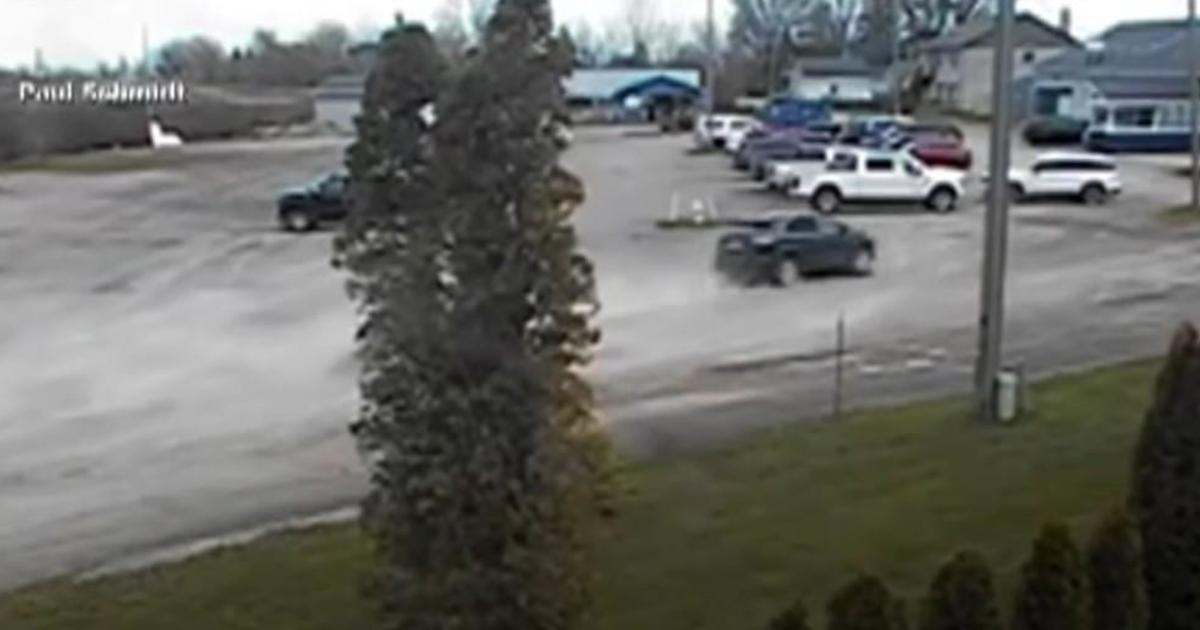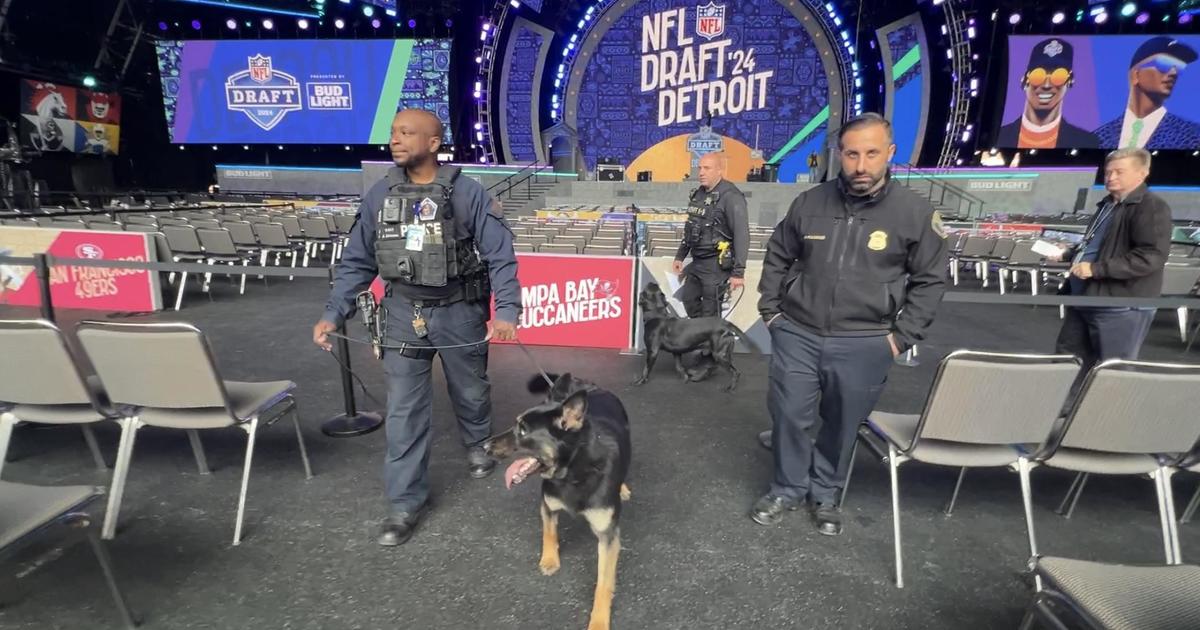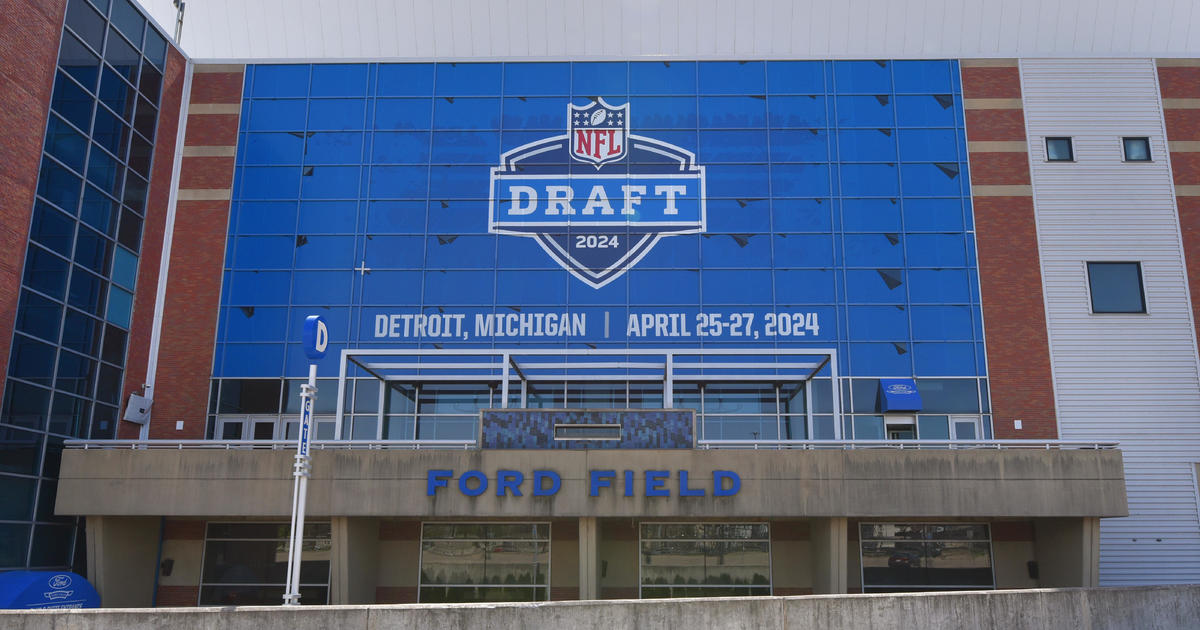Judge Refuses To Dismiss Right-To-Work Lawsuit
LANSING (WWJ) - A judge has declined to toss a lawsuit that says Michigan's right-to-work law is invalid because the Capitol doors were locked while the measure was debated back in December.
While issuing his ruling on Wednesday, Ingham County Circuit Judge William Collette on Wednesday said plaintiffs in the case have a "real uphill battle" to prove police intentionally violated the "Act" -- but that they should be allowed to depose witnesses and collect evidence in their attempt to overturn the law, which went into effect last week.
WWJ Newsradio 950 spoke with Joy Yearout, with the state Attorney Generals office, which sought to have the challenge dismissed.
"The reality is this lawsuit is just a back door attempt to undermine the right-to-work law," said Yearout. "There was no violation of the Open Meetings Act. It was something Michigan State Police acting in defense of public safety."
Labor unions, Democrats and others sued in January, saying the state Open Meetings Act was violated when police closed the Capitol to new visitors for more than four hours Dec. 6 during the first of two days of legislative action on right-to-work bills.
Michael Pitt, an employment law attorney based in Royal Oak, represents the plaintiffs in the case.
"That's what really boils my blood about this case, is that it was the public be damned -- and we're gonna fight this thing to try to undo what was clearly an unlawful act," said Pill.
The suit does not contest the substance of the law that prohibits requiring workers to pay union fees, though two others that do are pending in state or federal courts.
About an hour after Republican Gov. Rick Snyder and GOP legislative leaders announced plans to quickly pass a right-to-work law, state police cited concerns about safety and the Capitol's structural integrity and locked the doors shortly after noon. People already inside the building could stay, but hundreds more had to stay outside until 4:38 p.m. — after Collette ordered the doors reopened.
Assistant Attorney General Michelle Brya urged the judge to dismiss the suit, arguing the law requires all legal challenges to bypass local courts and go straight to the Michigan Court of Appeals. She said no Open Meetings Act violations occurred because citizens were in the House and Senate watching all day and the public had access to the proceedings on television and through media coverage.
"The purpose of the Open Meetings Act is to prevent public bodies from meeting in secret. The purpose of the Open Meetings Act was fulfilled," said Brya, who argued no final votes were taken during the building's closure on the two right-to-work bills that became law five days later.
Before the Capitol was closed, eight people were arrested when they tried to push past troopers guarding a Senate door, according to authorities.
Collette dismissed one of the defendants from the suit — Capt. Kevin McGaffigan, the on-scene incident commander for the state police who decided to close the Capitol.
The judge said he is not interested in second-guessing law enforcement officials who had the authority to close the building. Yet he pressed the state on an allegation that Republican staffers were directed to sit in the public gallery overlooking the House chamber, preventing right-to-work opponents from sitting there.
"There was a concerted effort to avoid having a lot of public people like myself (there). Isn't that true?" Collette asked.
Brya insisted there was no such effort but said even if there were staffers in the gallery, they didn't take up every seat.
ACLU attorney Michael Pitt said after the hearing that the ruling means evidence will be collected so the "public can understand once and for all what happened and how the Legislature conducted itself in a highly inappropriate way."
Collette — who said the Capitol closure was a first in state history — set an April 11 hearing to schedule a timeline for depositions and document exchanges. Pitt said he plans to ask McGaffigan who authorized his decision to close the Capitol and whether the governor's office and House and Senate leaders knew about it.
He said he has a photos showing that around 1:30 p.m. — about 1 ½ hours after the Capitol was locked — "it's basically a ghost town inside that building. There was absolutely no safety risk that we could see from those photographs. The eyewitnesses who were there completely dispute what the state police claim was a concern about overcrowding."
(TM and © Copyright 2013 CBS Radio Inc. and its relevant subsidiaries. CBS RADIO and EYE Logo TM and Copyright 2013 CBS Broadcasting Inc. Used under license. All Rights Reserved. This material may not be published, broadcast, rewritten, or redistributed. The Associated Press contributed to this report.)



